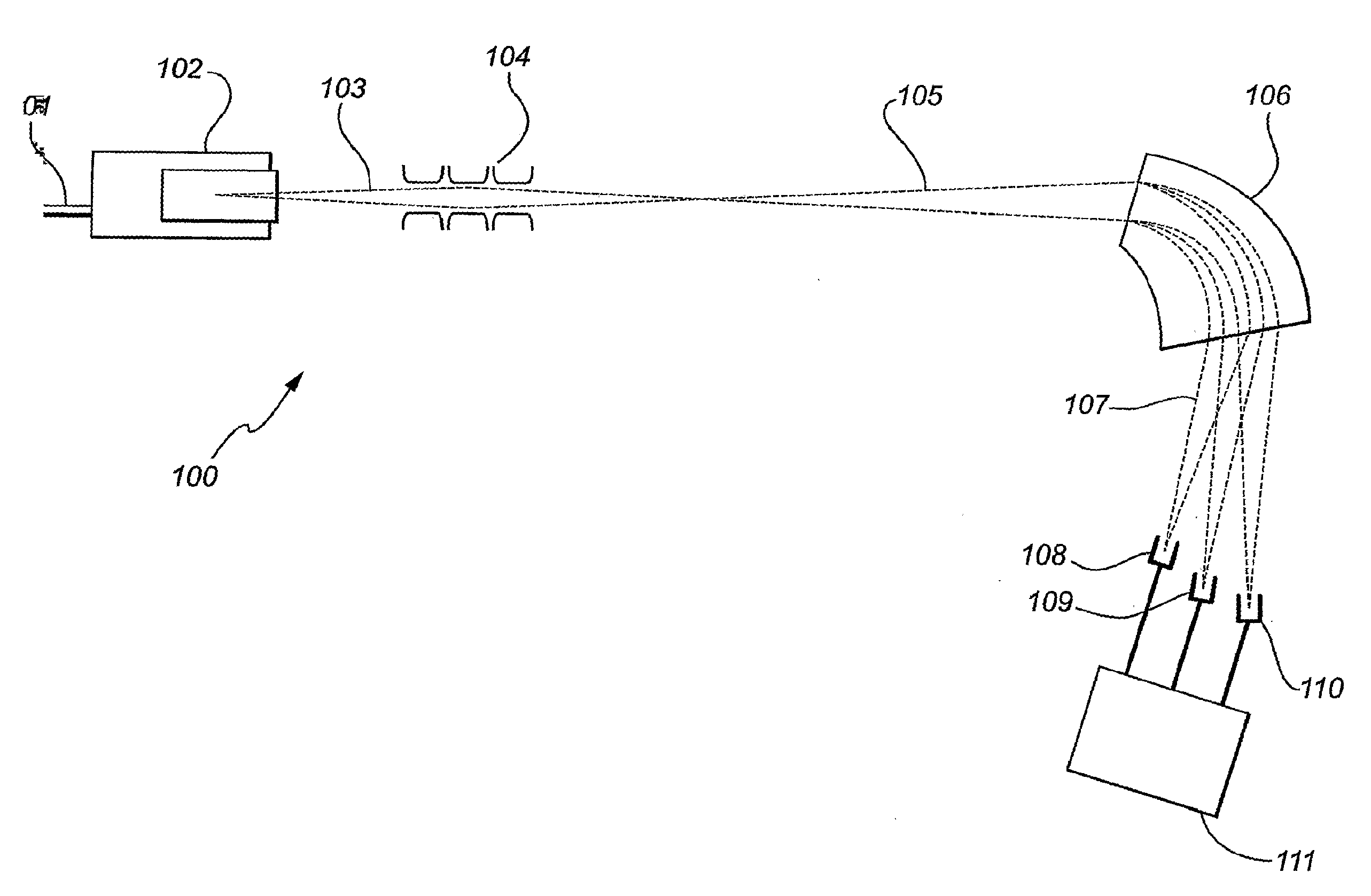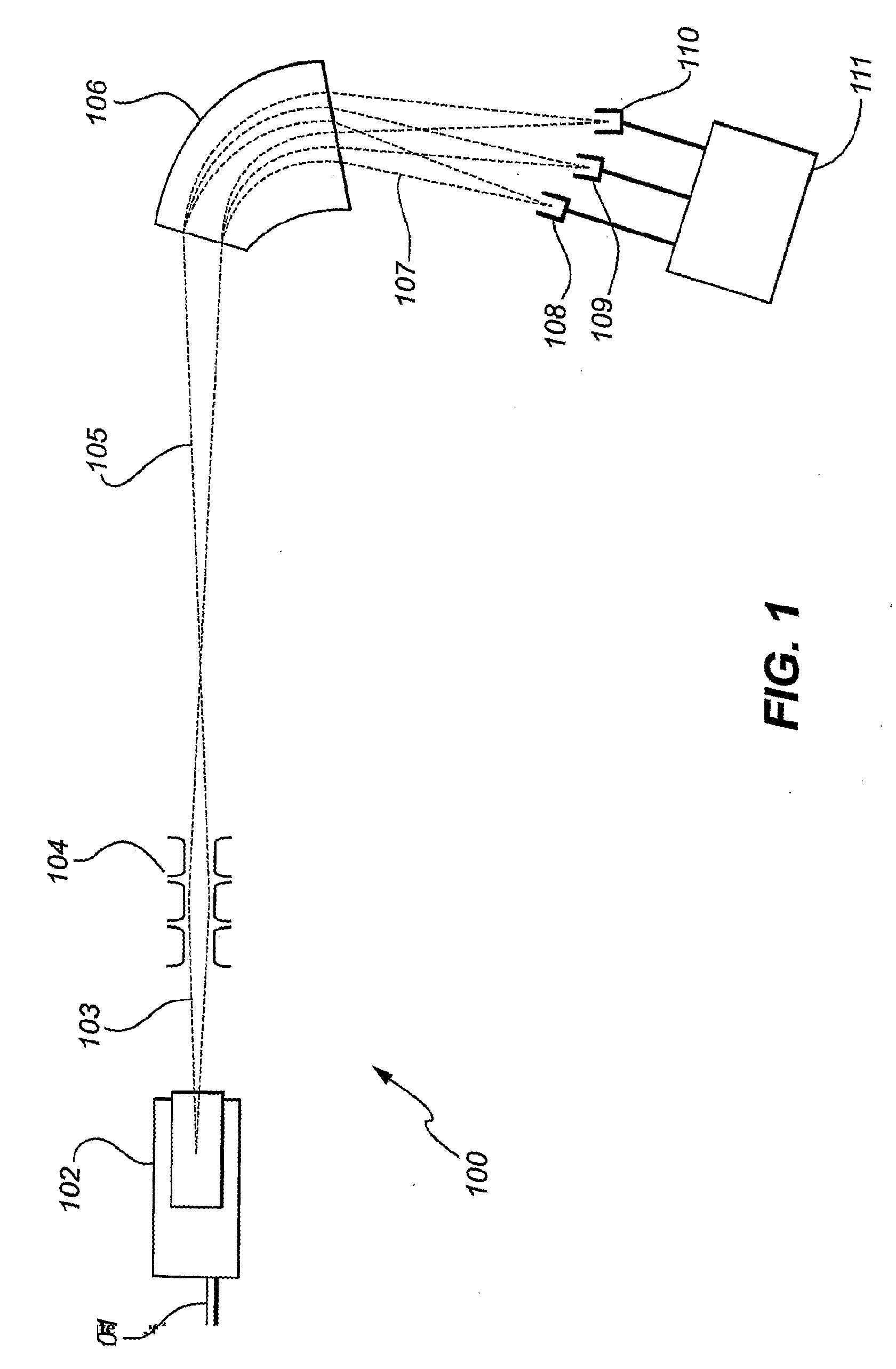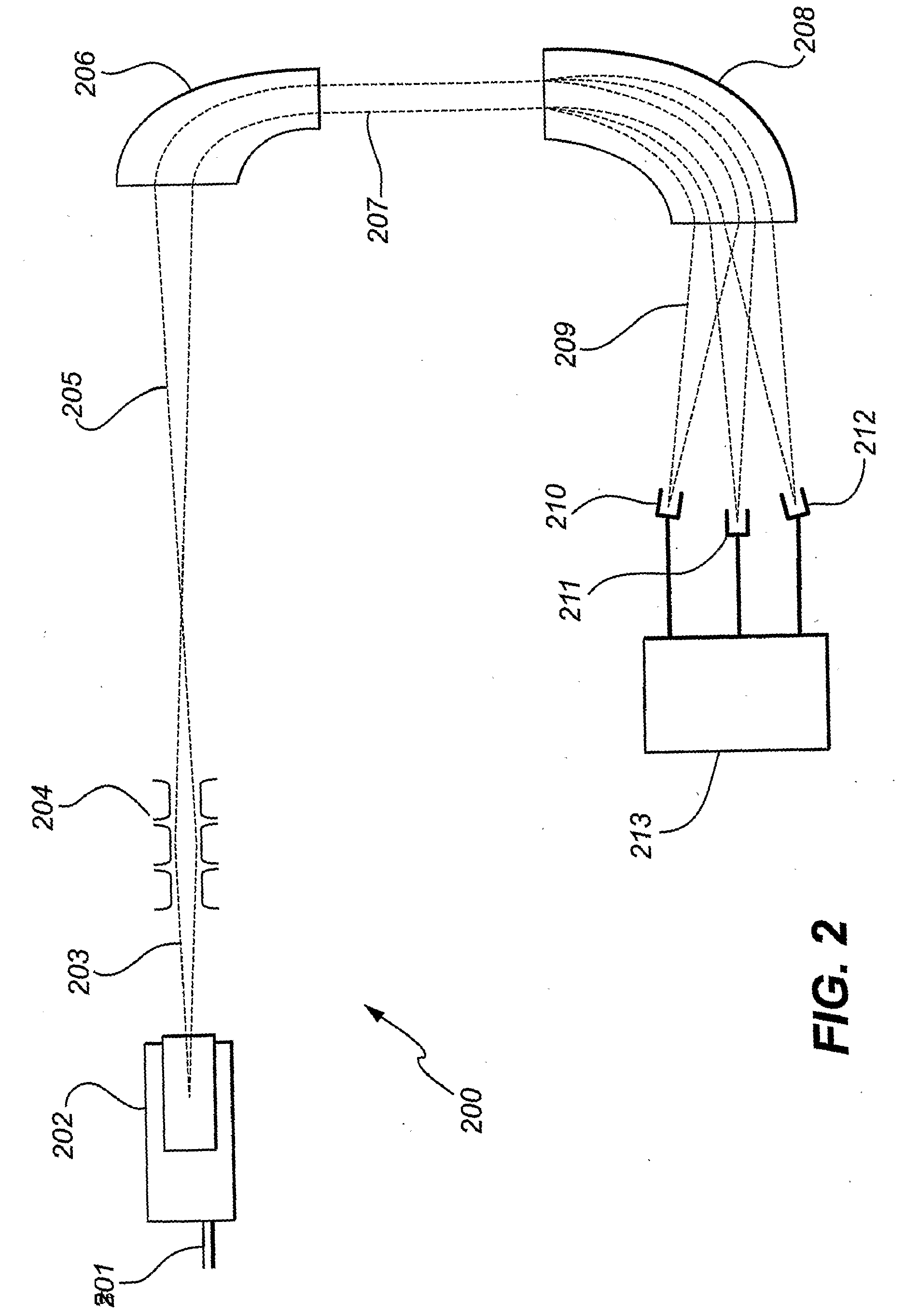Isotope ratio mass spectrometer and methods for determining isotope ratios
a mass spectrometer and isotope technology, applied in isotope separation, electric discharge tubes, separation processes, etc., can solve the problems of overlapping atomic peaks and molecular peaks, spectrometers suffer, and most existing spectrometers are unable to measur
- Summary
- Abstract
- Description
- Claims
- Application Information
AI Technical Summary
Benefits of technology
Problems solved by technology
Method used
Image
Examples
example 1
Determination of Oxygen Isotope Ratios in Water Vapour
[0205]
Faraday cup readingsRatioRatio16O2+ (nA)17O2+ (nA)18O2+ (nA)17O / 16O (%)18O / 16O (%)60602.3412.560.038610.207360522.3412.630.038660.208760652.3512.620.038750.208160532.3412.60.038660.208260502.3512.620.038840.2086Mean0.038710.2082Standard Deviation (%)0.23%0.27%Natural abundance0.038090.2055
example 2
Determination of Oxygen and Carbon Isotope Ratios in CO2 Gas
[0206]
Oxygen ions in +2 charge state:Faraday cup readingsRatioRatio16O2+ (nA)17O2+ (nA)18O2+ (nA)17O / 16O (%)18O / 16O (%)46701.9410.840.041540.232146551.94210.80.041720.232046501.94510.810.041830.232546371.9410.7880.041840.232746301.91210.620.041300.2294Mean0.041640.2317Standard Deviation (%)0.55%0.58%Natural abundance0.038090.2055
Carbon ions in +2 charge state:Faraday cup readingsRatio12C2+ (nA)13C2+ (nA)13C / 12C (%)240026.351.0979237626.351.1090237026.151.1034235025.911.1026233025.831.1086Mean1.1043Standard Deviation (%)0.42%Natural abundance1.1122
example 3
Determination of Nitrogen Isotope Ratios in N2 Gas
[0207]
Faraday cup readingsRatio14N2+ (nA)15N2+ (nA)15N / 14N (%)1085040.80.37601074040.70.37901076040.60.37731075040.70.3786Mean0.3777Standard Deviation (%)0.35%Natural abundance0.3673
PUM
 Login to View More
Login to View More Abstract
Description
Claims
Application Information
 Login to View More
Login to View More - R&D
- Intellectual Property
- Life Sciences
- Materials
- Tech Scout
- Unparalleled Data Quality
- Higher Quality Content
- 60% Fewer Hallucinations
Browse by: Latest US Patents, China's latest patents, Technical Efficacy Thesaurus, Application Domain, Technology Topic, Popular Technical Reports.
© 2025 PatSnap. All rights reserved.Legal|Privacy policy|Modern Slavery Act Transparency Statement|Sitemap|About US| Contact US: help@patsnap.com



